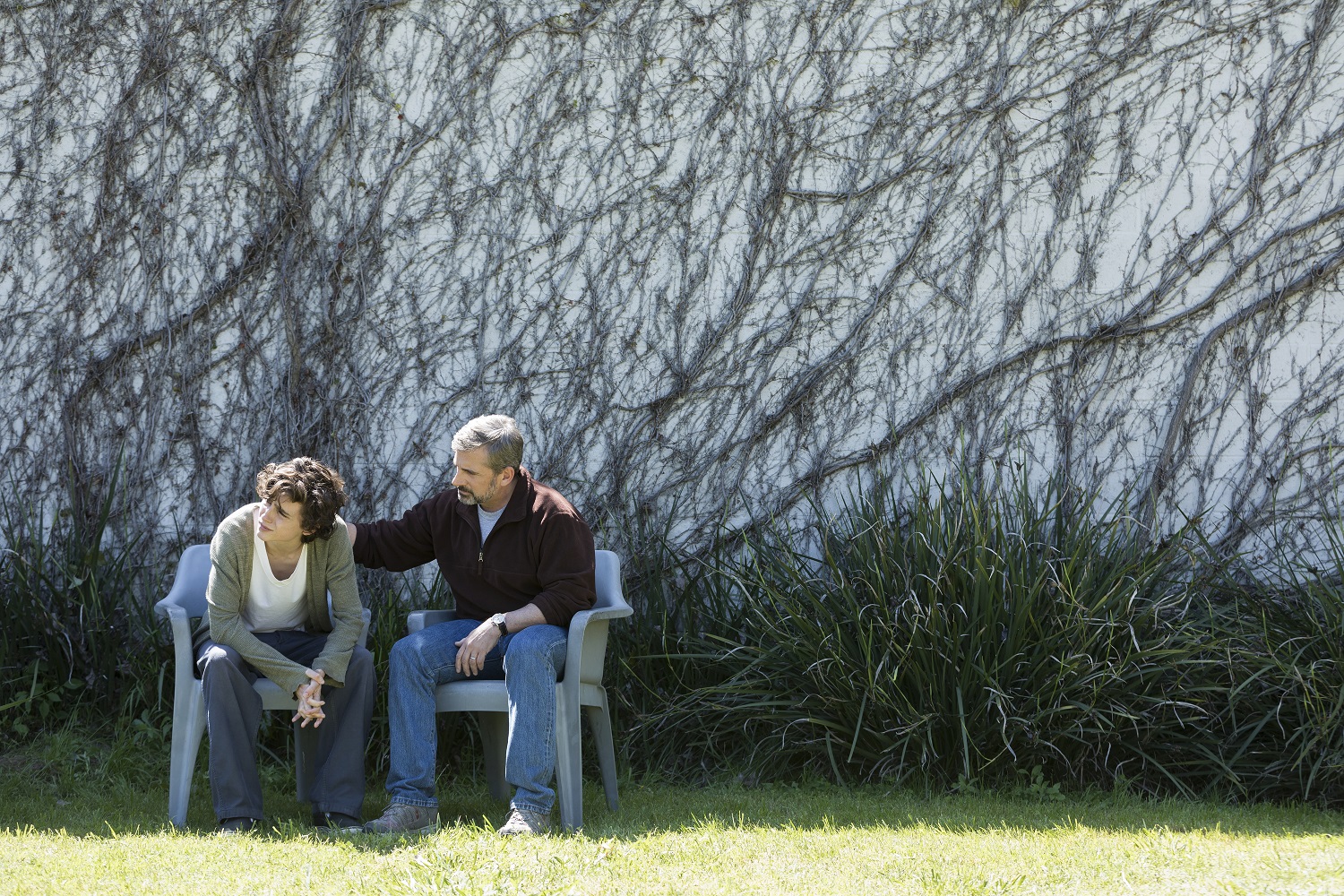Featuring tracks from John Lennon, Neil Young, Sigur Ros and more.
Beautiful Boy has been nominated for a spread of awards since its release late last year, though the film’s appeal extends far beyond evocative performances and a touching storyline. Deviating from the archetypal portrayal of addiction, which suggests only those in poor socioeconomic circumstances fall victim to substance abuse, the Hollywood depiction of father and son David and Nic Sheff is littered with allure.
Though the cast of Steve Carell, Timothée Chalamet, Maura Tierney and Amy Ryan bring the narrative to life, it is Beautiful Boy’s carefully curated soundtrack which elevates the film into a realm entrenched in realism. Emotion and sound are inextricably linked, and we are conditioned to respond intuitively as the music swells alongside a scene’s intensity. Yet, rather than opt for the innocuous ‘insert sad violins here’ tear jerk tactic, Beautiful Boy experiments with subtle sound in a manner much less on the nose.
London rapper Sampha, known for his collaborations with Drake, Kanye West and Solange alongside his independent success, penned the film’s opening track ‘Treasure’ after seeing the film for the first time. Offering soft keys and delicate vocals, Sampha emotes the fragility of the father-son dynamic with lines like “I wish we could heal/I’ll take you home/I’ll make you whole”, setting the tone for the film from its beginning.
The film takes its name from John Lennon’s ‘Beautiful Boy (Darling Boy)’, which is heard twice during the film; once as David researches meth after learning of his son’s drug use and again, this time sung unaccompanied by Carell, during a flashback in which Nic is being tucked into bed. Lyrics like “Close your eyes/Have no fear/The monster’s gone/He’s on the run and your daddy’s here” prove resonate in both cases.
The tone of the film fluctuates as the plot follows the peaks and troughs of both Nic’s battle with addiction and his relationship with his father, though the aural atmosphere often veers against the grain. Glimpses of hope and nostalgia are intertwined with the yearning, almost sombre croons of Tim Buckley’s ‘Song to the Siren’ and Neil Young’s ‘Heart of Gold’, while darker scenes are similarly contrasted by unexpected song choices. Whether we are being led through Nic’s relapse by Sigur Ros’ hauntingly serene ‘Sven-G-Englar’ or hurdling through an emotional car chase and near-fatal overdose alongside Pavlov’s Dog’s jarringly buoyant ‘Of Once and Future Kings’, the polarity of the two themes complement one another rather than clash.
The film doesn’t rely on the instinctual appeal of popular artists or the sentimental familiarity of fan-favourite tracks, either. In fact, after appearing on the film, Linda Brannon’s rockabilly 1957 single ‘Any Way You Do’ prompted the parent album’s record label, Fervor, to make the track available on streaming services. Equally diverse selections mark the passage of time and keep the soundtrack from fading into the background, such as Amon Tobin’s frenzied jazz number ‘Bridge’, which mirrors David’s own spontaneous fling with cocaine.
The ominous crescendo of Pan Sonic’s synth-heavy ‘Haiti’ would serve as a sensible choice to build suspense in a horror film, yet it slots into the scene in which David searches his son’s room for evidence of Nic’s relapse. The choice is so seamless and its selection is somehow simultaneously obvious and completely left of field. Meanwhile, Nirvana’s ‘Territorial Pissings’ as a symbol of Nic’s teenage angst is entirely expected yet far from tired.
All too often, soundtracks ambush the senses with screamingly obvious choices designed to evoke a very specific emotional reaction. Climactic happy endings are met with bubbly indie-pop songs. As the credits roll, you’re slapped in the face by a synthetic echo of genuine emotion, quashing any confusion as to how you should be feeling by whatever you’ve just watched. Beautiful Boy, on the other hand, illustrates the importance of leaving breathing room and allowing for personal interpretation.
The film in its entirety offers a certain looseness – we aren’t manipulated into rooting for Nic and at times, feel as fed up with his cyclical behaviour as his family. It is this fluidity which allows the soundtrack to act as another character within the film, rather than an afterthought. John Lennon’s ‘Beautiful Boy (Darling Boy)’ is famed for its line “Life is what happens to you when you’re busy making other plans” and that very ethos is emanated through the messy, consistently surprising nature of the film’s soundtrack.

